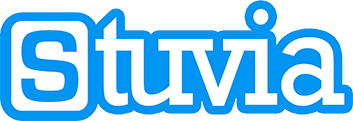
Reading a textbook of a few hundred pages is possible, but you need to understand what you have read and remember the information. That can be quite challenging! How to prevent staring for minutes at the pages, while your mind is blank, and you do not have a clue what you have just read. Study Psychologists created a term for the type of reading you apply when reading for instance study books that require concentration, it is called ‘intensive and active reading’. This means that you must immediately reflect on what you read. Before hitting the books, it is best to prepare. Use the following tips to make sure you memorize that enormous law-book by heart from now on!
Orientate before you begin
A textbook is divided by chapters, which are then divided by paragraphs. Most books also have an introduction and a brief summary per chapter. By preparing yourself on what you are going to read, you will be able to understand the structure of the book and separate major issues from side-issues. You know what to pay attention to. So always start by reading the beginning and the conclusion of a chapter.
Intensive and active reading
Textbooks are different texts to read than a novel during your summer holiday. It is likely you read slower and reflect on what you have read after every paragraph. Try to make connections between what you have read and what the author is trying to tell you. Wait with using marker pens, you will do this after the structure of the book is clear to you (read here how to use your markers in the best way).
Repeat
When you are done with the intensive reading, you are aware of the information discussed in the text and, hopefully, you can connect this with former and later discussed subjects. The repeating of what you have read can easily be done after each paragraph or page. It’s not necessary to wait until after the chapter to start repeating.
Reflect on what you read
Right now, it becomes clear that it is a big difference from reading a novel. What is the intention of the author with his/her piece of writing? Why is subject A connected to subject B and in what way? While reflecting, which happens often if you repeat reading the text, you can structure the information for yourself by highlighting words or write ideas next to the text. Another option is to make short summaries.
Check what you know
When you are at the exam and you realize you don’t know enough about subject X, it’s already too late. So, you need to check what you know and what information you have memorized after each chapter. You can do this by explaining all the highlighted terms to yourself, or even better, discuss the information with your classmates and practice old exams.
Remembering facts by heart
Sometimes you need to learn hard boring facts by heart. There is probably a reason you need to know these facts, so structure them well and know what they mean in the overall context. If you wouldn’t learn the context, you would just be programming yourself like a machine, which is not very useful for an exam.
Tips to memorize facts:
- Determine which facts are most important;
- Try to memorize the differences and similarities between terms and events;
- Don’t study too long on these facts in one moment, try to repeat them for a few minutes every day.
